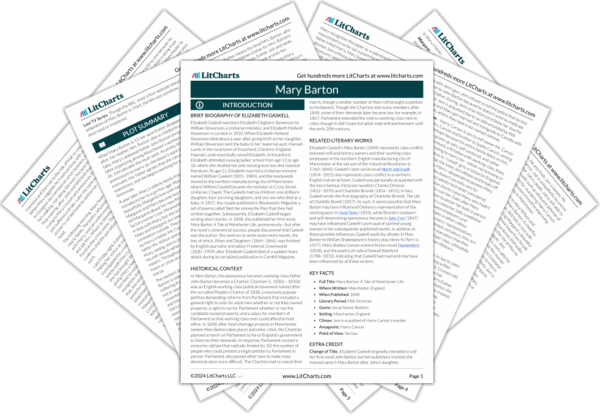Margaret’s doubt of Jem’s innocence suggests how much danger he is in: if even his friends believe that sexual and romantic feelings might have impelled him to violence, what will a jury think? Yet despite her doubts, Margaret offers to help Jem by paying for his lawyer, showing her practical morality and her generosity, which she couches in terms of the Christian Golden Rule, which enjoins helping people and which, Margaret believes, also requires people to accept help.
